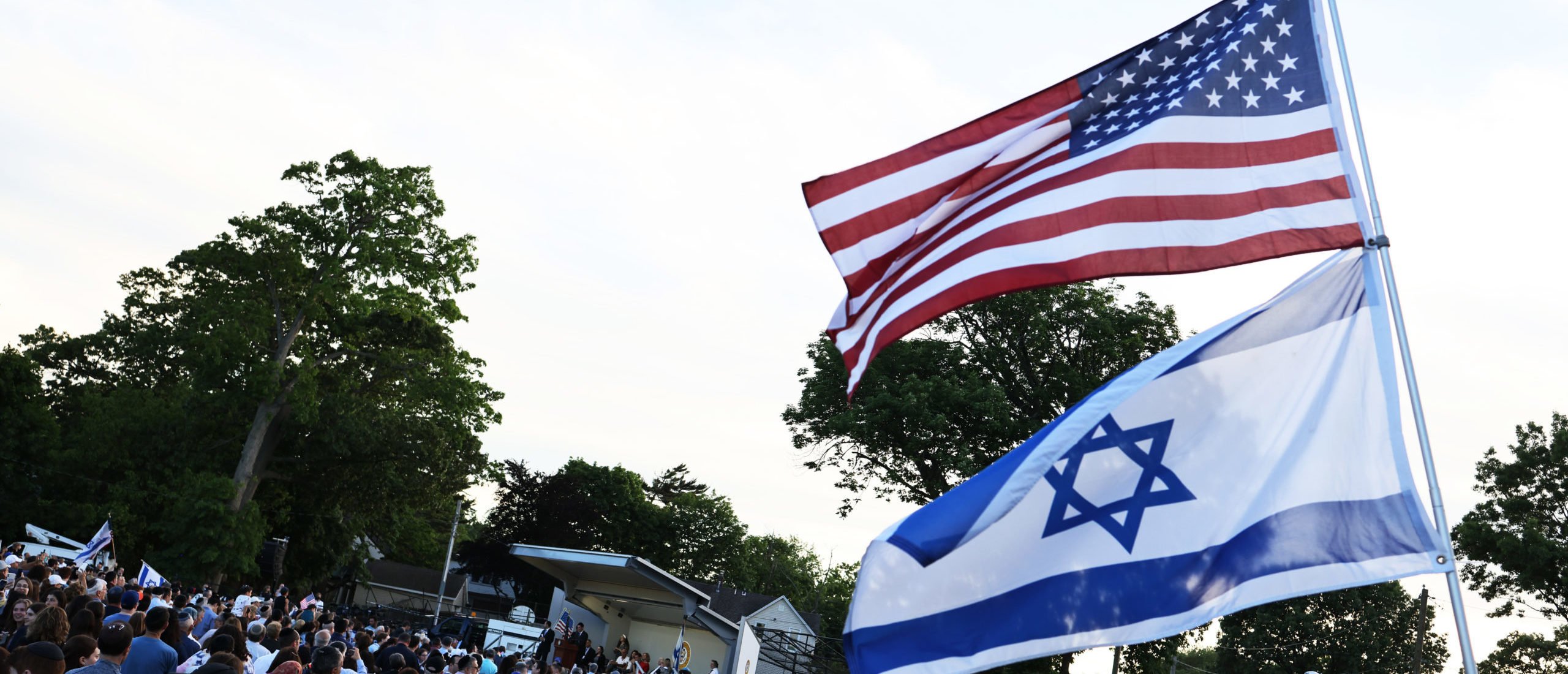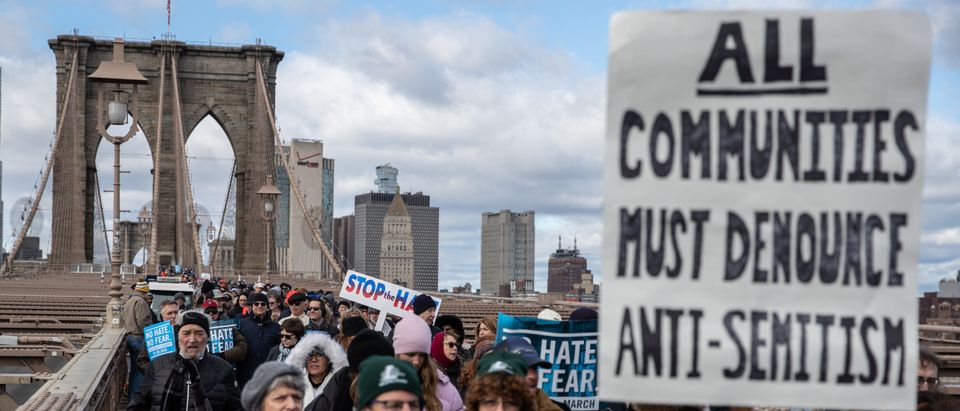- Jewish communities have raised concerns about light sentencing offered to defendants charged with hate crimes, and leading policy and human rights experts that spoke with the Daily Caller News Foundation argue that lower sentences may embolden future attacks.
- The FBI’s 2021 hate crime report did not include statistics from major cities with high Jewish populations such as New York City, Miami and Los Angeles, leading to heavy criticism from Jewish organizations.
- “The fact that prosecutors are cutting deals with unrepentant antisemites while judges aren’t imposing anywhere near the maximum sentence indicates how far the justice system must go to take antisemitic crimes seriously,” StopAntisemitism Executive Director Liora Rez said in a statement to the Daily Caller News Foundation.
Leading policy and human rights experts that spoke with the Daily Caller News Foundation have raised concerns about light sentencing and plea deals offered to defendants charged with antisemitic hate crimes, warning it may embolden future attacks.
Four men and a minor were charged with assault and hate crimes after severely beating up Joseph Borgen, who is Jewish, during a pro-Israel rally in Times Square in 2021, while shouting “dirty Jew” and “Fuck Israel,” according to the Jewish News Syndicate. Waseem Awawdeh, who said he would “do it again,” was offered a plea deal by New York District Attorney Alvin Bragg for only six months of jail time and five years of probation, worrying human rights and policy experts that going easy on hate crimes would encourage more violence. (RELATED: ‘These Scumbags Came To The Wrong County’: Florida Sheriff Responds To Antisemitic Incidents)
Marc Stern, chief legal officer for the American Jewish Committee, told the DCNF that while he could not comment on sentencing for specific defendants “lighter sentences” in situations “where Jews are victimized” are “problematic”
“Whatever sentences are handed down need to have a deterrent effect,” Stern said. “If they don’t, then stiffer sentences may be in order.”
Charles Lehman, a fellow at the Manhattan Institute, told the DCNF that hate crimes are often difficult cases for the prosecution, but also said that Borgen’s case seemed like it wouldn’t be “hard to prove” and that the plea deal was a “substantially” lower sentence.
“The purpose of hate crime enhancements, and hate crime charges in general, is primarily to recognize that there is an additional harm when the defendant is bias-motivated, so being punched while called a slur is worse than just being punched and the sentence should reflect that,” Lehman said. “I agree with the sentiment, I think that minimal charges for hate crimes are ineffective deterrents, the guy is going to be back on the street in six months.”

A rally was held by various organizations and local Jewish community groups to support Joseph Borgen, a recent victim of a hate crime, after a rise of violent anti-Semitic attacks in New York and across the U.S. (Photo by Michael M. Santiago/Getty Images)
A recent report from Americans Against Antisemitism found that, between 2018 and 2022, only two individuals who were accused of antisemitic hate crimes were given prison sentences in New York City, and less than 10 out of 194 were convicted. In another recent case, Saadah Masoud was given an 18-month prison sentence and three years of supervised release for attacking at least three Jews that were wearing recognizable Jewish and Israeli symbols from 2021 to 2022, according to the Department of Justice.
“The fact that prosecutors are cutting deals with unrepentant antisemites while judges aren’t imposing anywhere near the maximum sentence indicates how far the justice system must go to take antisemitic crimes seriously,” StopAntisemitism Executive Director Liora Rez said in a statement to the DCNF.
Kenneth Marcus, founder and chairman of the Louis D. Brandeis Center for Human Rights Under Law and former assistant secretary for the Department of Education for Civil Rights, told the DCNF that the problem extends beyond New York and pointed to the FBI’s hate crime report released late last year.
The FBI’s 2021 crime report was criticized by many human rights groups for not including hate crime statistics from major cities such as New York City, Miami and Los Angeles. Jewish hate crimes, in particular, were believed to be wildly underreported since several of the cities contained some of the largest Jewish populations in the country.
Just over half of the states in the U.S. have hate crime reporting laws, and while 37 states have laws on the books protecting religious sites, synagogues and mosques are often not included despite being a common target, according to Open Access Government. In the first few months of the year alone, there have been multiple targeted shootings of Jews in California, one attacking a synagogue, and an assassination plot to kill Jewish government officials in Michigan.
Lehman explained that many prosecutors’ offices, like Braggs’, are undermanned with limited resources and sometimes a lower sentence is the quickest way to get the perpetrator immediately off the street, but also indicated that light sentencing still sends the “wrong message.”
“Hate crime offenders are not specialists, they often commit non-hate crime offenses as well which means that the risk to the public is going to come back rather quickly … [and] a light sentence sends the wrong message about how seriously antisemitic hate crimes are taken in the city,” Lehman said.
The Manhattan District Attorney’s office did not immediately respond to the DCNF’s request for comment.
All content created by the Daily Caller News Foundation, an independent and nonpartisan newswire service, is available without charge to any legitimate news publisher that can provide a large audience. All republished articles must include our logo, our reporter’s byline and their DCNF affiliation. For any questions about our guidelines or partnering with us, please contact licensing@dailycallernewsfoundation.org.


